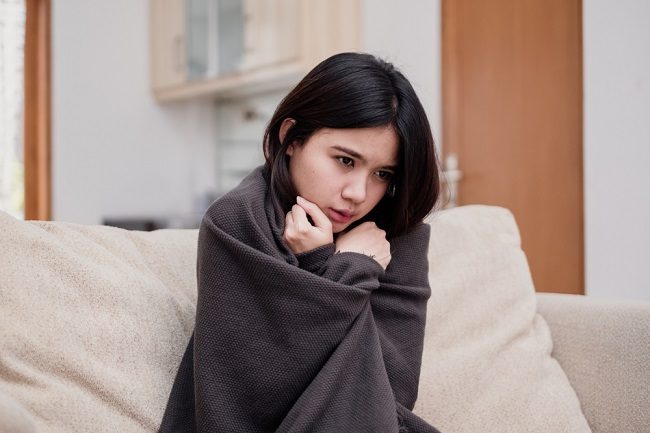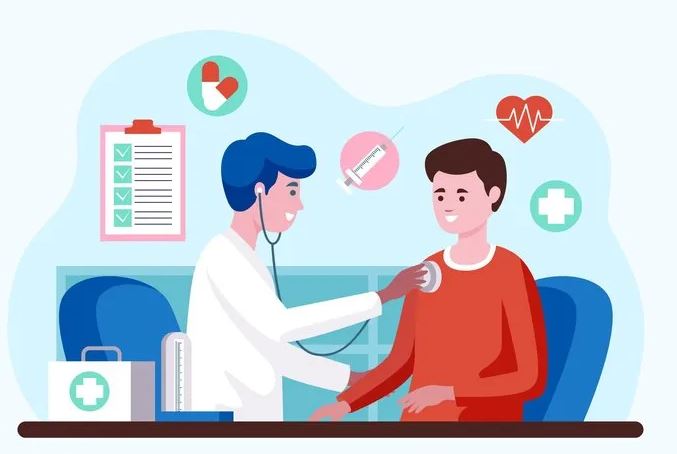Lately, the air temperature in Bandung and its surroundings has felt very cold, even the lowest temperature has reached 14 degrees Celsius. What is the cause? The Meteorology, Climatology and Geophysics Agency (BMKG) said that the cause of this cold air temperature is the Australian monsoon wind. This wind brings cold air from the Australian Continent.
According to BMKG, cold air temperatures usually occur in July or entering the dry season and are expected to end at the end of the dry season. Cold air can have an impact on the health of the body.
“When the body is exposed to cold air, the body will respond as a normal process to maintain heat by narrowing the blood vessels (vasoconstriction) of the skin throughout the body and the formation of heat (thermogenesis) through the process of shivering,” said Lecturer of the Faculty of Medicine, Department of Basic Medical Sciences, Physiology Division, Pasundan University, Dr. Marwan Rosada, M. Biomed
Cold Air Effects
Dr. Marwan explained that the effects of cold air on the body depend on the temperature of the air and the length of exposure. Exposure to cold temperatures can cause various conditions including:
Decreased body temperature
Exposure to cold air can cause a decrease in body temperature, this process occurs due to the loss of body heat and narrowing of blood vessels, especially in the extremities (such as the feet and hands), as a result the feet and hands feel colder. The risk of hypothermia can also occur if exposed to extreme or prolonged cold temperatures, hypothermia is a condition of body temperature below normal (<35°C). Dry Skin Cold air tends to have low humidity, this causes the skin to lose its water content so that the skin is more prone to dryness, in addition direct exposure to cold winds can remove the protective layer of oil on the skin and make the skin feel stiffer and cracked. Respiratory Tract Problems Cold air can cause blood vessels in the respiratory tract to narrow, this can make breathing feel more difficult. Low humidity can also cause the respiratory tract to become dry and irritated.
Diseases Lurking in Cold Air According to him, cold air can also increase the risk of several diseases. Here are some diseases that often appear due to cold air temperatures: Influenza: Influenza is not a disease that is directly caused by cold temperatures, but the virus that causes the common cold spreads more easily in winter, colder weather allows the virus to survive longer in the air. Other viruses such as rhinovirus are also more common in winter. Allergic rhinitis: or “allergic cold” is a condition in which a person experiences symptoms such as nasal congestion, sneezing, itching in the nose and eyes, which are caused by allergic reactions. Cold air can trigger certain reactions in some individuals who are sensitive to changes in temperature. Asthma: Asthma sufferers often experience relapses during the winter because cold and dry air can trigger relapses. Urticaria: Cold temperatures can worsen eczema (atopic dermatitis).
Sensitive skin causes urticaria in the form of an itchy rash and appears elevated on the skin. Tips for Staying Healthy in Cold Weather Dr. Marwan also provides tips for staying healthy in cold weather, namely: Wearing warm clothes can maintain body temperature by reducing the rate of heat loss. The parts of the body that often lose body heat are the head, hands, and feet.
Consume warm food and drinks Maintain indoor air humidity: a humidifier in the house can help maintain air humidity Exercise: Exercising can help improve blood circulation, this can help increase overall body temperature, exercise can also maintain heart health. WHO (World Health Organization) recommends 150 minutes of aerobic physical activity every week to maintain general body health Get enough rest: Getting enough quality sleep can boost the immune system. Using moisturizer regularly can protect the skin from cold air and prevent dry skin. Take multivitamins: in addition to helping the body get enough nutrition, multivitamins can maintain the immune system Vaccination: By getting the influenza vaccine, the risk of getting the flu can be reduced.



